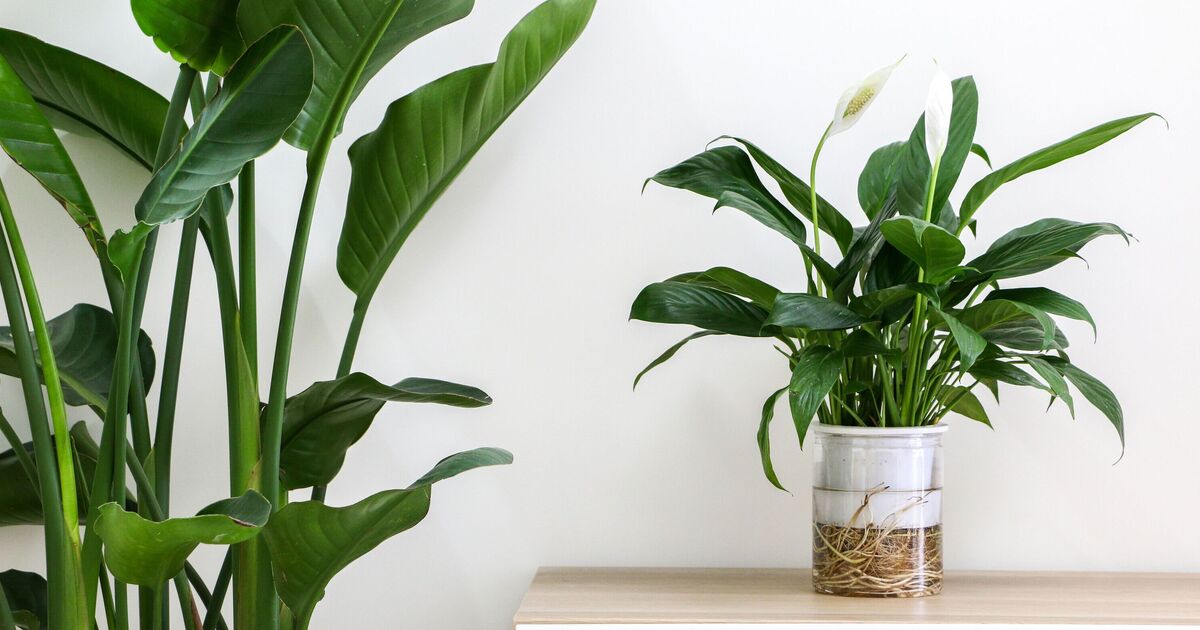As the colder months approach, mould growth can become increasingly concerning in many households. This is particularly true for older homes, including Victorian houses and listed buildings, which often feature higher humidity levels and reduced ventilation.
The unique architecture of these historic properties can create ideal conditions for mould growth, leading to potential health risks and structural damage. Although houseplants aren’t a cure-all, certain varieties can help reduce excess moisture in the air, however, making them a useful addition to your home’s defence against mould.
In a TikTok video, Root Growings (@rootgrowings) has revealed their top six houseplants which could help prevent moisture in your home, and stop it turning into mould. But they also warn some aren’t suitable for pets.
These are: English Ivy (not pet friendly), Spider Plant, Peace Lily (not pet friendly), Orchids, Air Plants and Boston Fern.
Experts from Beards & Daisies have also backed up using houseplants as a way to prevent mould in homes.
How Houseplants Help Absorb Moisture
Beards & Daisies explain that certain houseplants are renowned for their ability to absorb moisture through a process known as transpiration. “Plants such as Peace Lilies and the Bird of Paradise are particularly effective at pulling moisture from the air, which can help lower indoor humidity levels—one of the primary triggers for mould growth,” they reveal.
“By strategically placing these plants in damp areas, homeowners can create a natural humidity buffer.”
Air-Purifying Qualities
The experts went on to detail how some houseplants also improve indoor air quality. “Peace Lilies and Snake Plants are known to reduce airborne toxins that can contribute to mould spore growth,” they note as examples.
“These plants absorb pollutants and convert them into nutrients, helping to clean the air naturally—a vital consideration for older homes where ventilation may be limited.”
Where to Place Them
“To maximise the benefits of your houseplants, consider placing them in areas prone to dampness, such as bathrooms, kitchens, or laundry rooms,” Beards & Daisies recommends when it comes to placement. “Boston ferns thrive in these environments and can help maintain optimal humidity levels.
“In historic homes, this can be particularly beneficial, as these spaces often experience higher moisture levels due to frequent use of water.”
Expert Insights
Jo, founder of Beards & Daisies and author of the houseplant guide ‘The Unkillables‘, closes by emphasising the practical benefits of houseplants in moisture control. “Incorporating a few carefully chosen houseplants can make a real, measurable difference in controlling moisture and mould, especially in the cooler months when these issues tend to peak,” she explains.
“While houseplants are often praised for their aesthetic appeal, their functional role in improving indoor air quality and humidity regulation is frequently overlooked. They not only help with humidity but also contribute to creating a fresher, healthier atmosphere overall.
“It’s a small but effective way to improve your home environment, especially when other ventilation options might be limited during autumn and winter—and let’s not forget, houseplants boost your mood too.”










